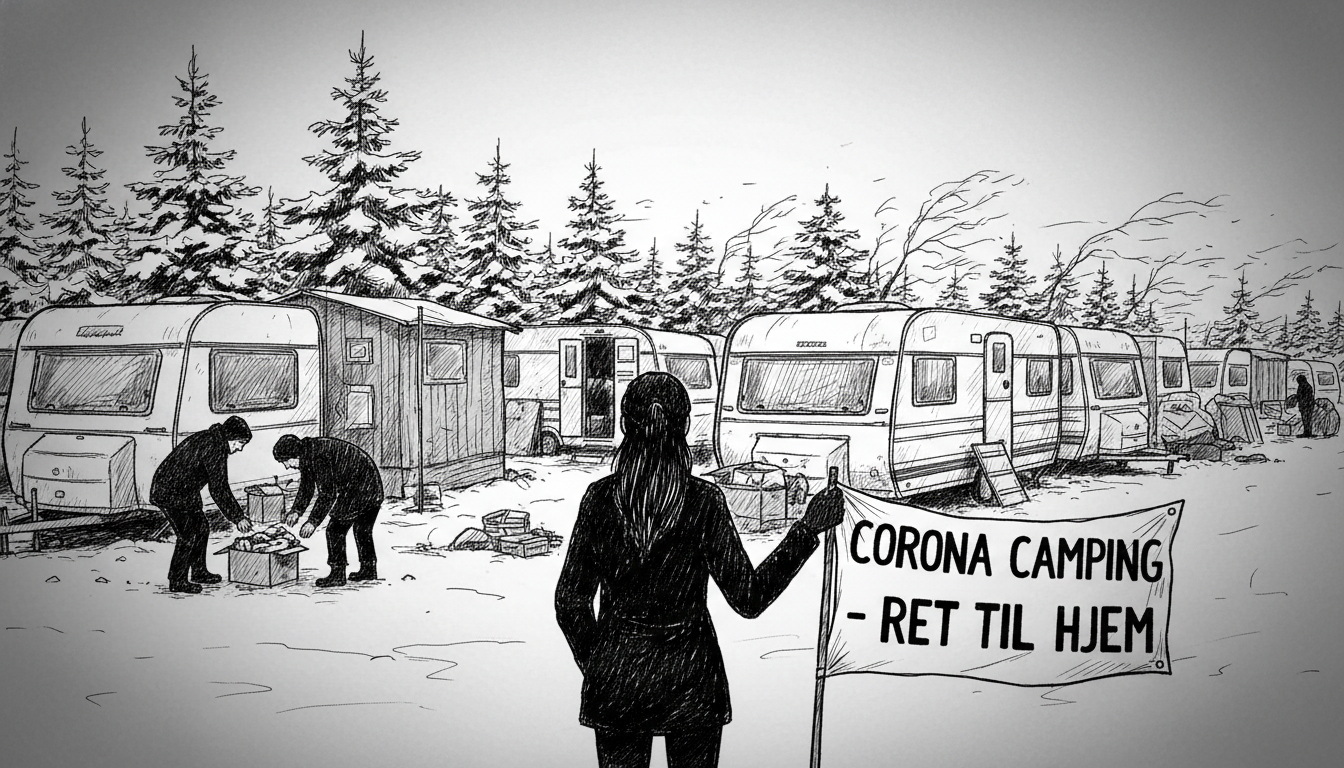Authorities in Køge Municipality have ordered Corona Camping to clear all trailers for winter starting today. The seasonal camping ground near Borup must remain completely empty until February 1.
Previous winter arrangements allowed temporary stays from November through January. That permission has now been revoked following a ruling that the site violated camping regulations.
Co-owner Susanne Farnø says the decision puts vulnerable residents at risk of homelessness. She has formed a political party called Corona Camping List to fight for residents who have no winter housing alternatives.
"I feel terrible about this," Farnø said. "Many citizens could end up on the streets. Of course this distresses me."
Corona Camping has developed into an unconventional community where some residents live year-round despite regulations prohibiting permanent residence on camping grounds. The site has become known for accepting marginalized individuals.
Jonas Bjørn Whitehorn, a Social Democrat member of Køge's city council, acknowledged the social challenges but emphasized legal requirements.
"Corona Camping is a campground and must follow campground laws," Whitehorn stated. "The social circumstances don't excuse lawbreaking."
In spring, municipal authorities won their case before the Planning Appeals Board. The ruling found Corona Camping had illegally permitted year-round residence. The campground's winter permit was consequently revoked.
Olav Frekhaug has lived at Corona Camping for three years. He and his neighbors have not packed their belongings and say they have no plans to leave.
"Here I have nature and people who care about me," Frekhaug explained. "I don't want apartment living. I cannot understand why we're being thrown out. This is our home, our neighbors."
Despite his defiance, Frekhaug admits the eviction notice worries him deeply.
"I'm shaken and afraid of what comes next," he said. "Like all residents here, I'm scared about what will happen now."
Municipal authorities have announced inspections of the campground. Consequences for non-compliance could include police involvement.
"Typically this ends with police reports if orders aren't followed," Whitehorn noted.
The situation highlights Denmark's ongoing challenges with alternative housing and marginalized communities. While officials enforce regulations designed for traditional campgrounds, residents face losing their unconventional homes during Scandinavia's harsh winter months.
Farnø continues fighting to preserve the community she helped build.
"Human considerations get forgotten in this policy," she argued. "Particularly in Køge Municipality. I will protest against that."
Whitehorn expressed sympathy for residents but maintained they must find other solutions.
"Exactly the same rules apply to Corona Camping residents as to other vulnerable citizens in Køge Municipality," he said.
The standoff represents a classic Nordic dilemma balancing rule of law against social welfare needs. As temperatures drop, time is running out for compromise.
